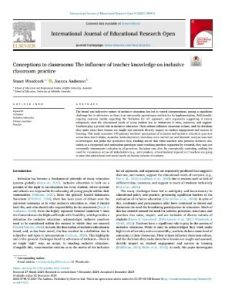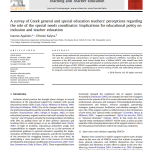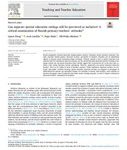
Authors: S. Woodcock, J. Anderson
Type: Journal Article
Abstract:
The broad and subjective nature of inclusive education has led to varied interpretations, posing a significant challenge for its advocates, as there is no universally agreed-upon method for its implementation. Additionally, ongoing concerns persist regarding the "inclusion for all" approach, with arguments suggesting it cannot adequately meet the educational needs of every student due to limitations in time, resources, and support. Teachers play a pivotal role in inclusive education. Their actions influence classroom culture, and the decisions they make about how lessons are taught and assessed, directly impact on student engagement and success in learning. This study examined 140 primary teachers’ perceptions of inclusion and inclusive education practices across New South Wales, Australia. Semi-structured interviews were carried out and thematic analysis was used to investigate and probe the qualitative data. Findings reveal that while teachers who perceive inclusive education as a categorical and ambivalent paradigm enact teaching practices supported by research, they may not necessarily demonstrate inclusion in all practices. Inclusion can often be conceptually confusing, making the need for consistency across all stakeholders (e.g., policymakers, school leaders) imperative if teachers are going to meet the educational and social needs of diverse cohorts of students.
Field: Inclusive Education



